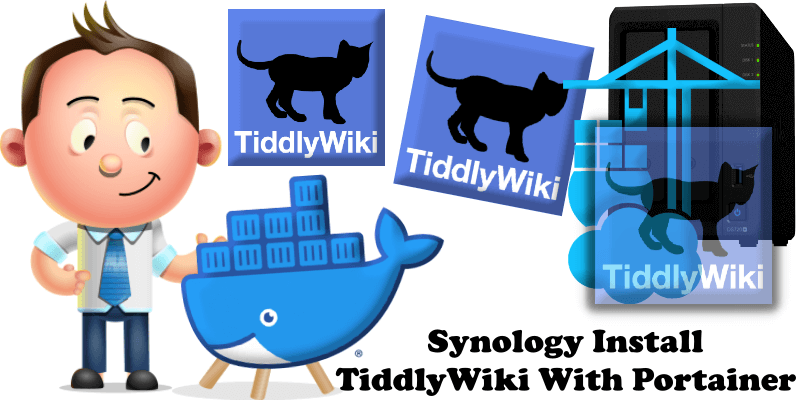
My previous guide for TiddlyWiki involved the use of Task Scheduler. Today I’m offering a recommended and excellent alternative for installing the latest TiddlyWiki version via Portainer. TiddlyWiki is a personal wiki and a non-linear notebook for organizing and sharing complex information. It is an open-source single page application wiki in the form of a single HTML file that includes CSS, JavaScript, and the content. It is designed to be easy to customize and re-shape depending on application. In this step by step guide I will show you how to install TiddlyWiki on your Synology NAS using Docker & Portainer.
STEP 1
Please Support My work by Making a Donation.
STEP 2
Install Portainer using my step by step guide. If you already have Portainer installed on your Synology NAS, skip this STEP. Attention: Make sure you have installed the latest Portainer version.
STEP 3
Go to File Station and open the docker folder. Inside the docker folder, create one new folder and name it tiddlywiki. Follow the instructions in the image below.
Note: Be careful to enter only lowercase, not uppercase letters.
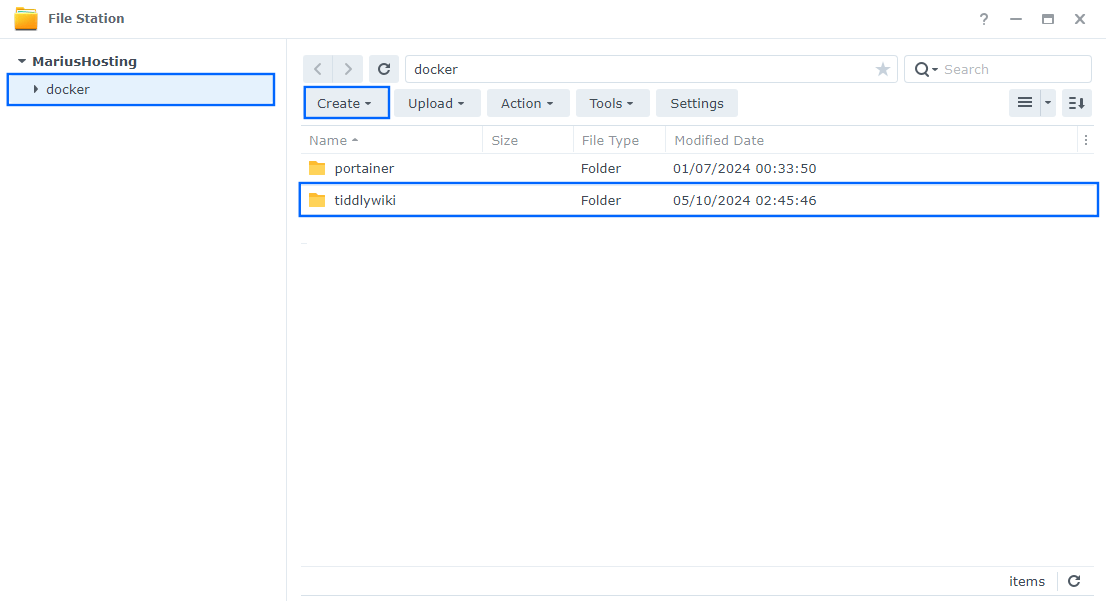
STEP 4
Log into Portainer using your username and password. On the left sidebar in Portainer, click on Home then Live connect. Follow the instructions in the image below.

On the left sidebar in Portainer, click on Stacks then + Add stack. Follow the instructions in the image below.

STEP 5
In the Name field type in tiddlywiki. Follow the instructions in the image below.
services:
tiddlywiki:
container_name: TiddlyWiki
image: jbardi/tiddlywiki5-lazy-images:latest
security_opt:
- no-new-privileges:false
environment:
USERNAME: marius
PASSWORD: mariushosting
volumes:
- /volume1/docker/tiddlywiki:/var/lib/tiddlywiki:rw
ports:
- 5645:8080
restart: on-failure:5
Note: Before you paste the code above in the Web editor area below, change the value for USERNAME. Type in your own username. marius is an example for a username.
Note: Before you paste the code above in the Web editor area below, change the value for PASSWORD. Type in your own password. mariushosting is an example for a password.
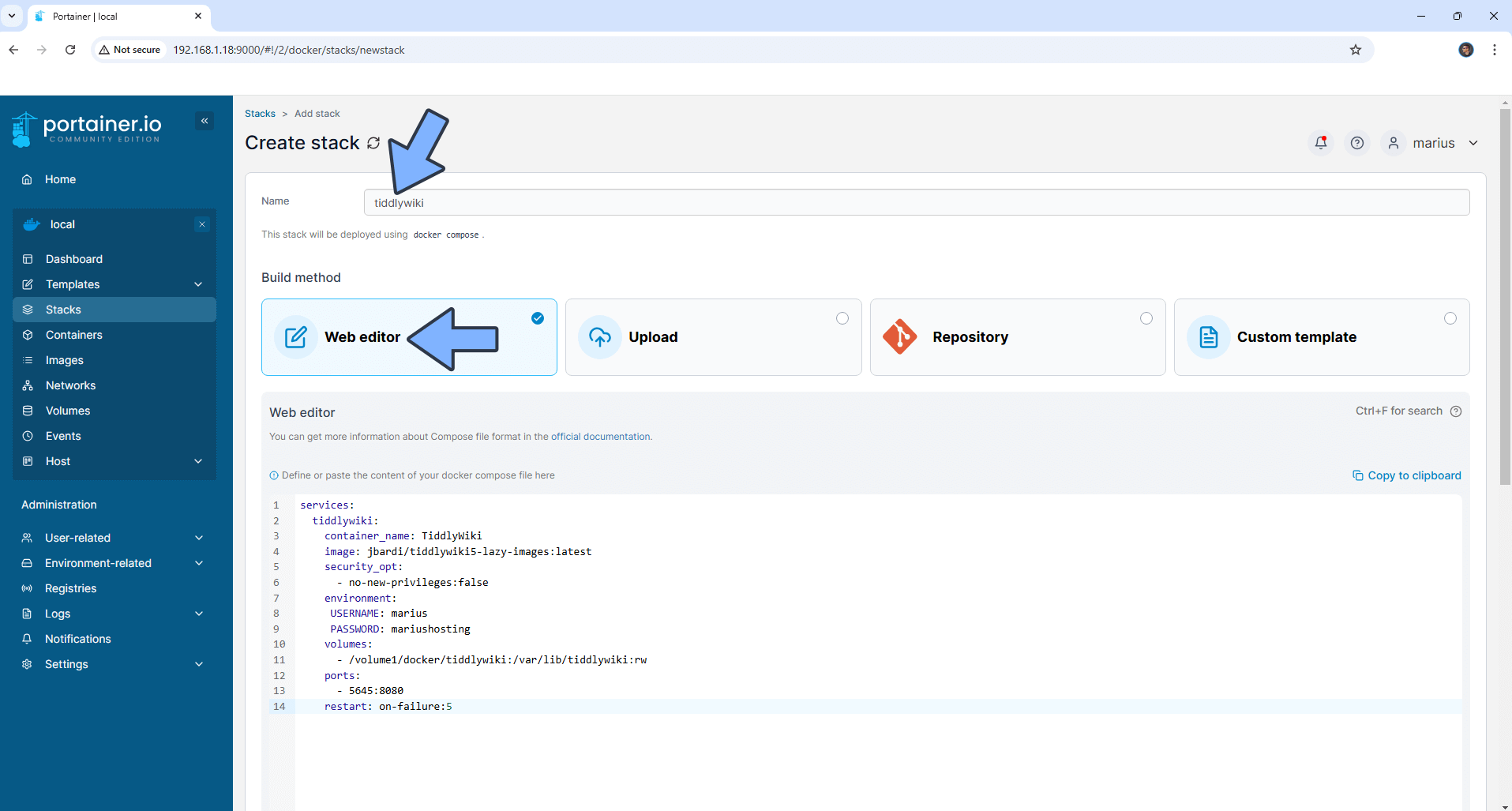
STEP 6
Scroll down on the page until you see a button named Deploy the stack. Click on it. Follow the instructions in the image below. The installation process can take up to a few minutes. It will depend on your Internet speed connection.
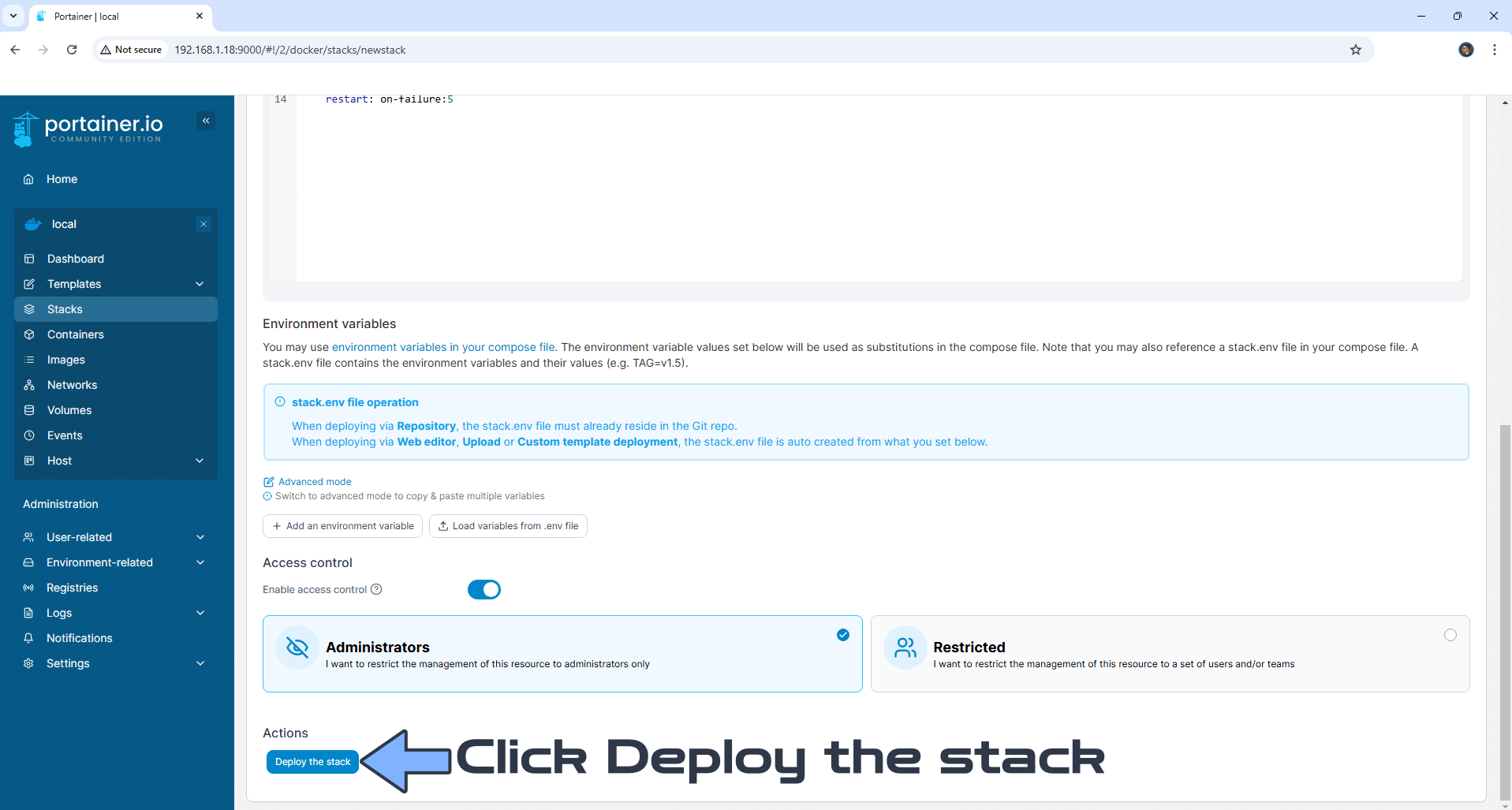
STEP 7
If everything goes right, you will see the following message at the top right of your screen: “Success Stack successfully deployed“.

STEP 8
🟢Please Support My work by Making a Donation. Almost 99,9% of the people that install something using my guides forget to support my work, or just ignore STEP 1. I’ve been very honest about this aspect of my work since the beginning: I don’t run any ADS, I don’t require subscriptions, paid or otherwise, I don’t collect IPs, emails, and I don’t have any referral links from Amazon or other merchants. I also don’t have any POP-UPs or COOKIES. I have repeatedly been told over the years how much I have contributed to the community. It’s something I love doing and have been honest about my passion since the beginning. But I also Need The Community to Support me Back to be able to continue doing this work.
STEP 9
The installation process can take up to a few seconds/minutes. It will depend on your Internet speed connection. Now open your browser and type in http://Synology-ip-address:5645 Add your own Username and Password you have previously created at STEP 5. Click Sign In. Follow the instructions in the image below.
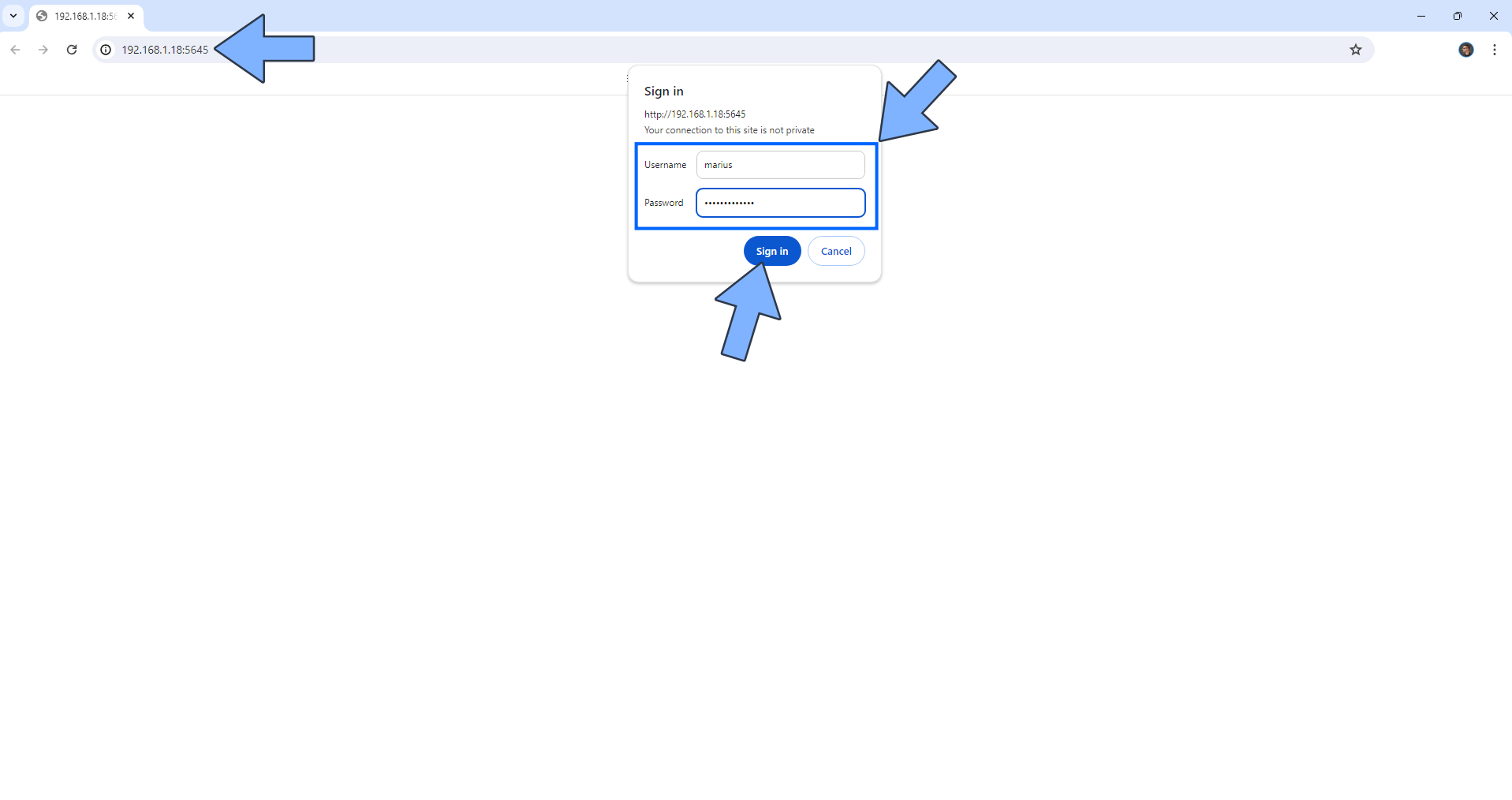
STEP 10
You can start adding your first post. Follow the instructions in the image below.
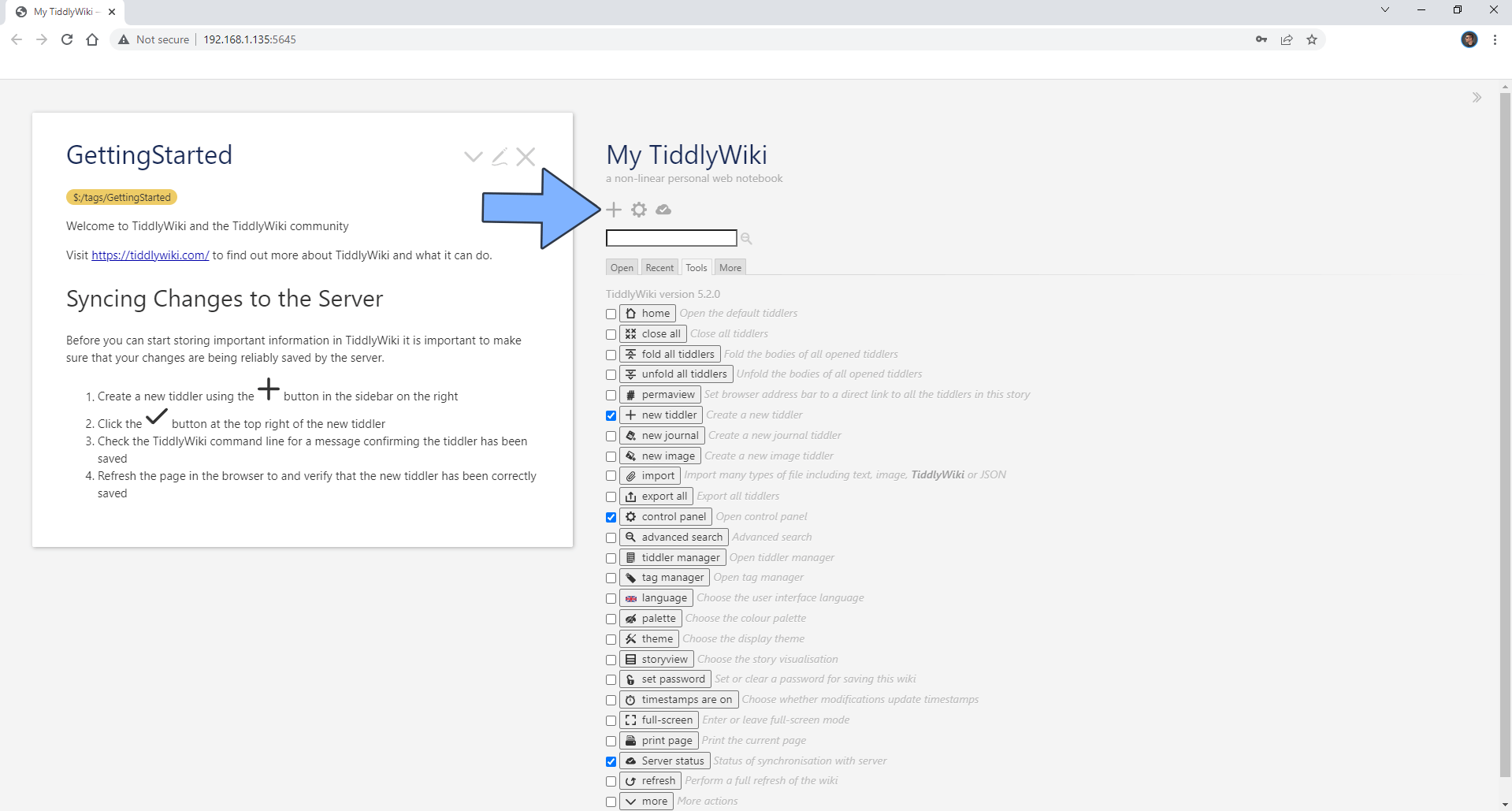
STEP 11
After adding your first post, save it. Follow the instructions in the image below.
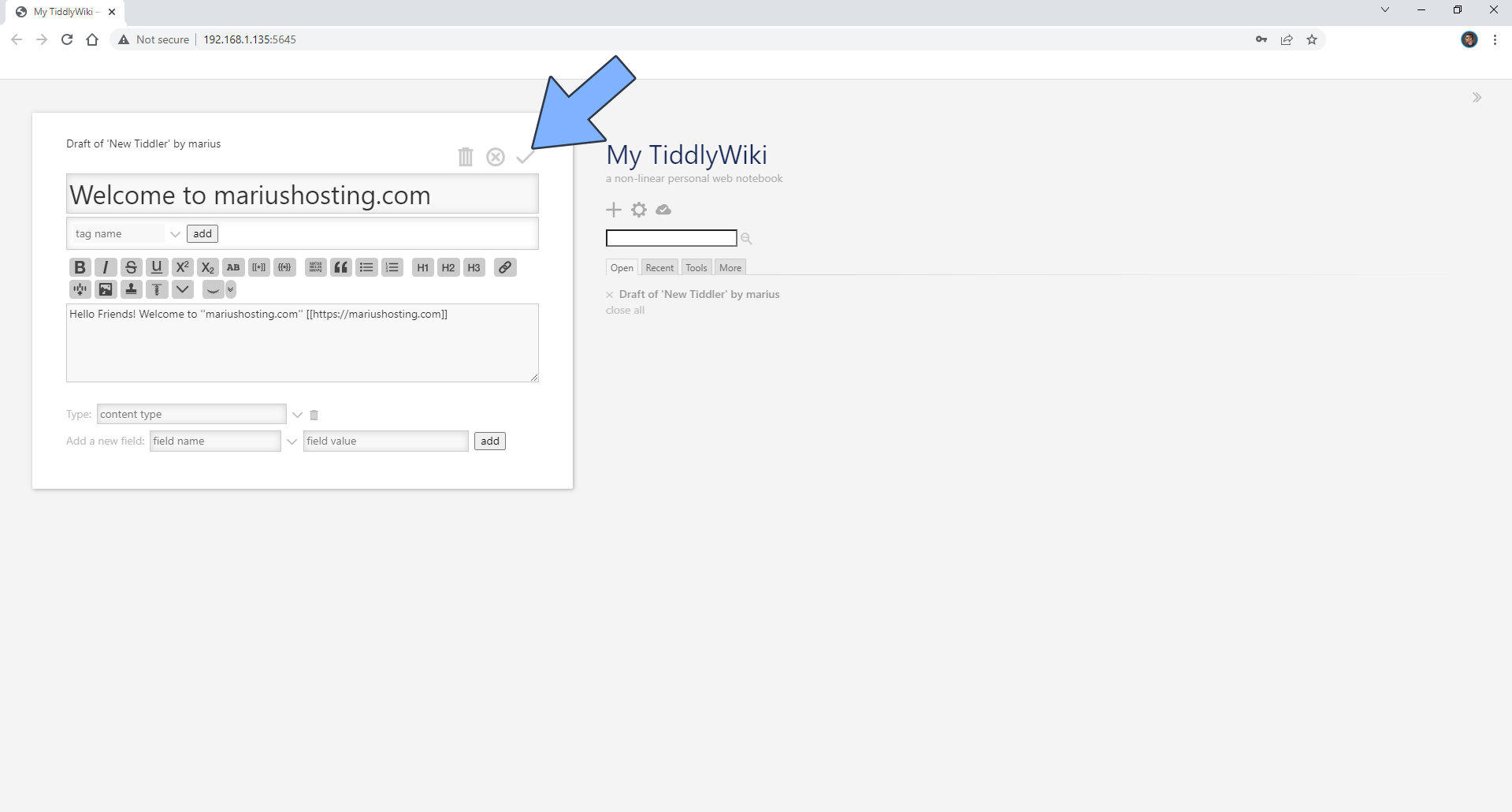
STEP 12
You can change your current TiddlyWiki theme by clicking the little gear icon at the top of the page. Click “Palette“. Follow the instructions in the image below.
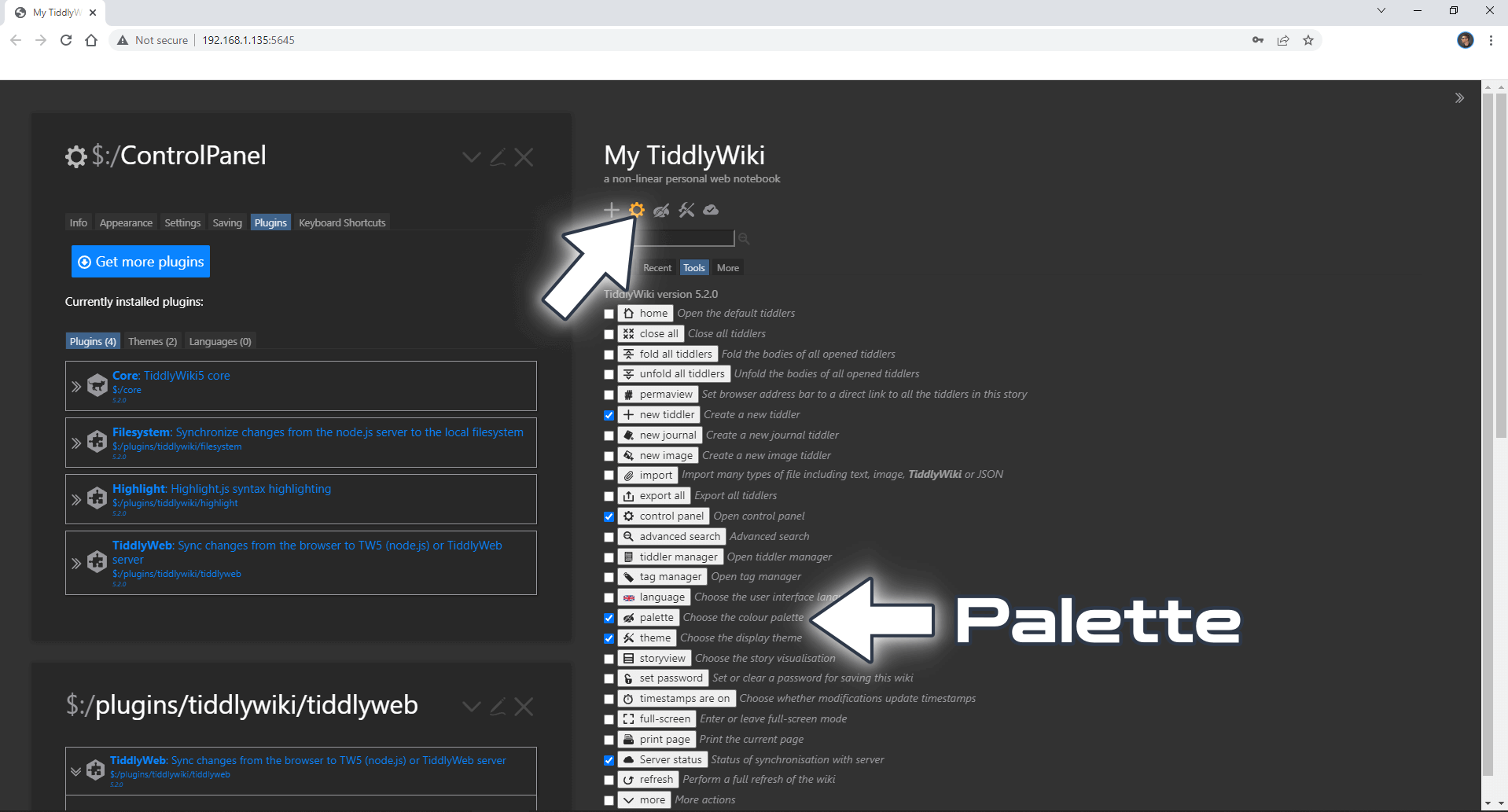
STEP 13
Your new TiddlyWiki skin at a glance!
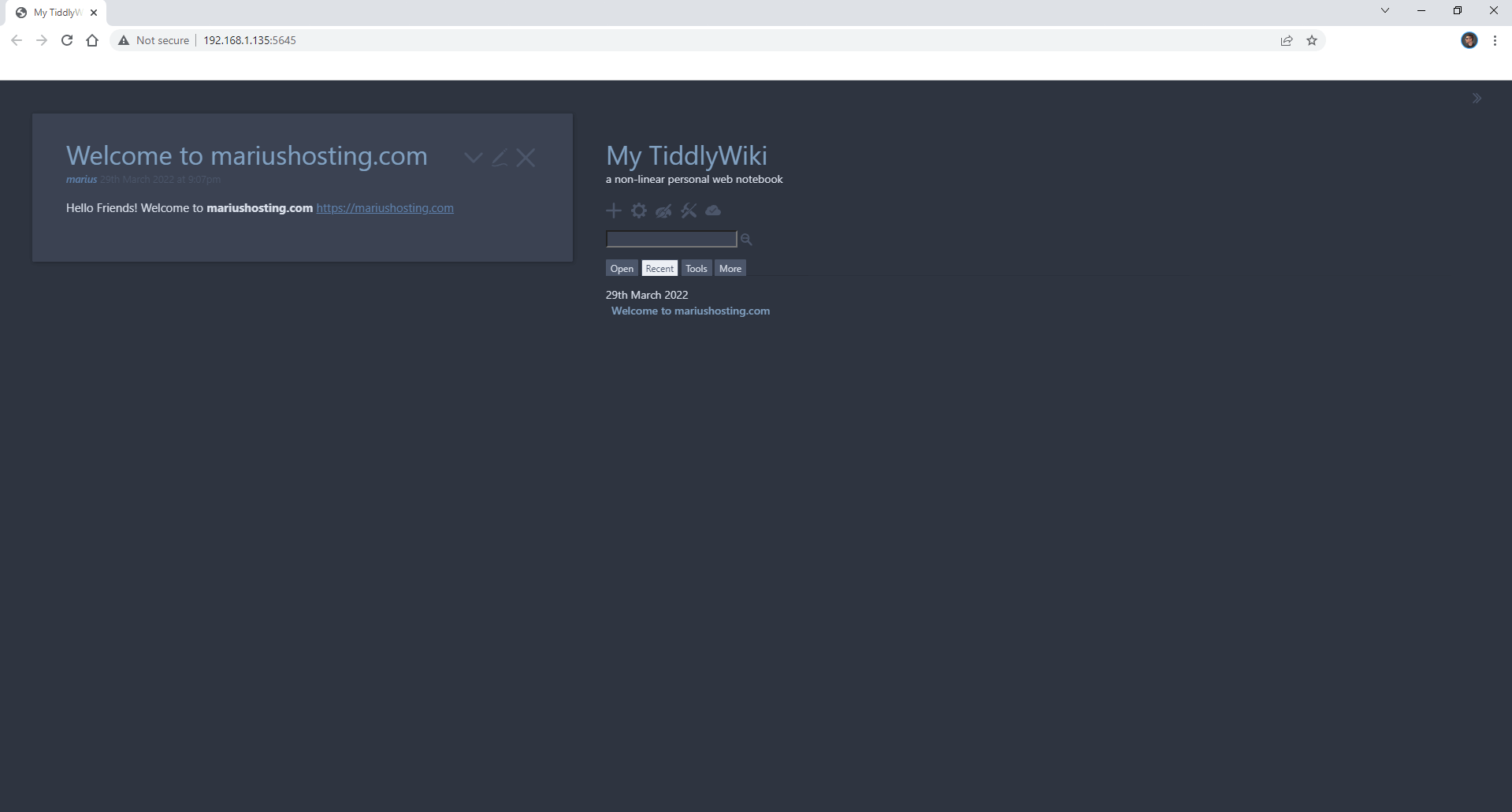
Enjoy TiddlyWiki!
If you encounter issues by using this container, make sure to check out the Common Docker issues article.
Note: If you want to run the TiddlyWiki container over HTTPS, check How to Run Docker Containers Over HTTPS. In order to make TiddlyWiki work via HTTPS, it’s mandatory to activate WebSocket.
Note: Can I run Docker on my Synology NAS? See the supported models.
Note: How to Back Up Docker Containers on your Synology NAS.
Note: Find out how to update the TiddlyWiki container with the latest image.
Note: How to Free Disk Space on Your NAS if You Run Docker.
Note: How to Schedule Start & Stop For Docker Containers.
Note: How to Activate Email Notifications.
Note: How to Add Access Control Profile on Your NAS.
Note: How to Change Docker Containers Restart Policy.
Note: How to Use Docker Containers With VPN.
Note: Convert Docker Run Into Docker Compose.
Note: How to Clean Docker.
Note: How to Clean Docker Automatically.
Note: Best Practices When Using Docker and DDNS.
Note: Some Docker Containers Need WebSocket.
Note: Find out the Best NAS Models For Docker.
Note: Activate Gmail SMTP For Docker Containers.
This post was updated on Saturday / January 3rd, 2026 at 10:21 PM
